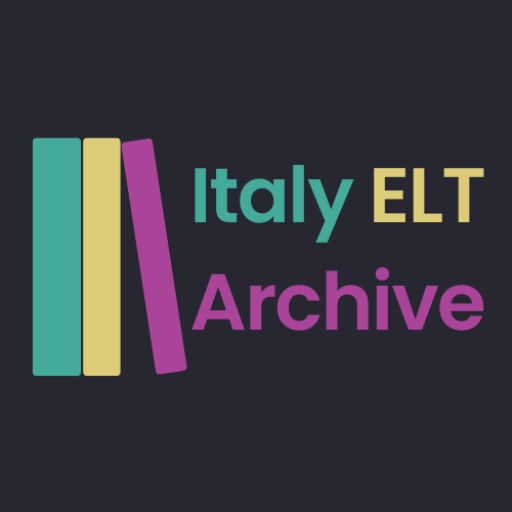On 20 September 2024, the Italy ELT Archive was launched during a symposium which gathered experts from the world of academia, education, and teachers’ associations. The symposium included paper presentations, a round table, and a workshop, which explored the history of English language education and materials development in the Italian context from different perspectives.
The symposium was attended by an enthusiastic audience of in-service and pre-service teachers, students, materials writers, professionals from the publishing sector, etc., who had the chance to listen to the invited experts and also to get involved in a hands-on activity based on the materials in the Archive. Some students and trainee teachers coming from our University also took part in the symposium, so we asked two of them to share their thoughts, in particular, regarding the discussion in the round table and the activity in the workshop. Their opinions are particularly valuable, as they demonstrate the value of historical research in English language education for teacher training.
Francesca Visigalli attended the Master’s degree program in “European and Extra-European Languages and Literatures” at the University of Milan, and she is now writing her dissertation. She has experience of tutoring school students in foreign languages, and she is now teaching English in a private school for very young and young learners. Here is what she told us about the round table The role of universities, ELT associations and journals in Italy.
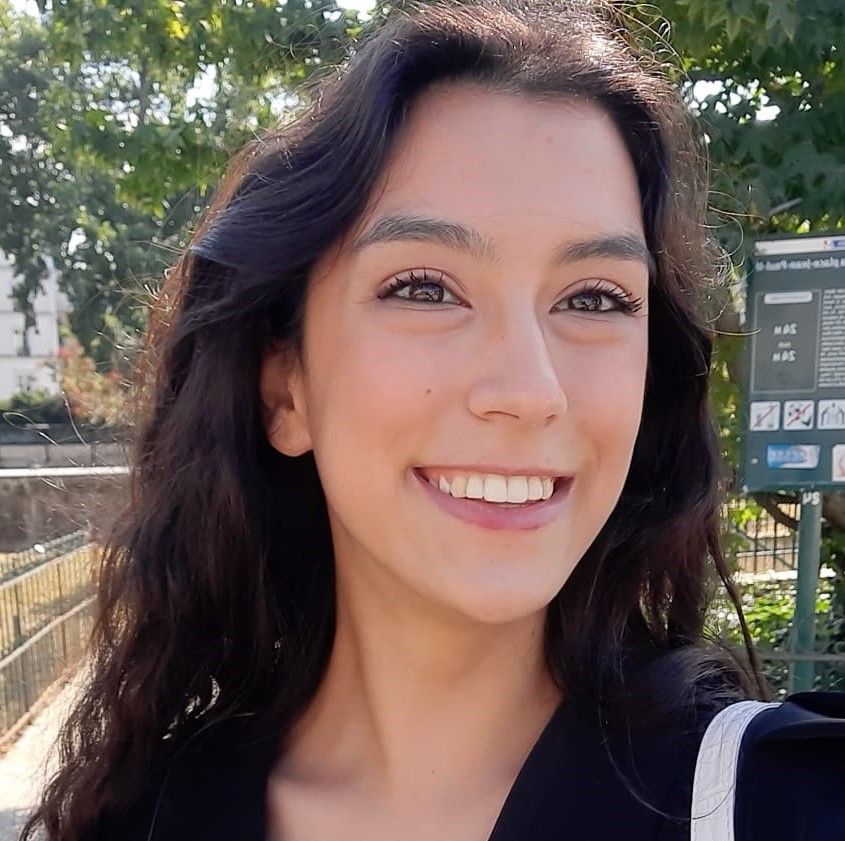
«The Italy ELT Archive is a significant resource for the development of English Language Teaching (ELT) in Italy. As a trainee teacher, I was pleased to attend the conference and roundtable organised by the Italy ELT Archive on the 20th of September 2024. During the roundtable discussion, leading voices in ELT explored the contributions of universities, associations, and journals to the field. Their insights were truly inspiring and made me realise the importance of enhancing ELT research and strengthening the connections between universities and associations in order to support educators, foster professional growth, and shape the future of language teaching. Additionally, the chair and discussants emphasised the need for the new generation of teachers to take initiative and become actively engaged in the teaching community. Their words helped me understand that a teacher is not just confined to the classroom but is someone dedicated to improving language teaching on a broader scale. Teachers’ contribution has the potential to go well beyond the classroom if they are willing to participate in research and support associations that advance the profession.
Professor Stefania Nuccorini, who chaired the round table, opened the discussion by reflecting on the critical role played by ELT journals, which act as a bridge between past achievements and future opportunities for innovation and improvement in English language teaching. She suggested integrating these journals into the Italy ELT Archive to ensure that future educators and researchers have access to valuable historical resources.
Professor Lucilla Lopriore, who represented TESOL Italy, highlighted the importance of associations in teacher training, advocacy, and publication efforts. TESOL Italy, part of TESOL International, has played a fundamental role in the spread of innovative teaching approaches and materials since its founding in 1975 by Mary Finocchiaro. The association not only focuses on ELT but also engages with multilingual education, aiming to develop teachers’ expertise and foster a sense of professional community. TESOL Italy’s publications, such as Perspective and its Newsletter, which provide resources for innovative teaching strategies and pedagogical research, are a very valuable resource for present and future teachers.
Professor Lopriore emphasised the need for collaboration between universities and associations in order to conduct studies and produce efficient materials to address educators’ evolving needs. She sees the Italy ELT Archive as an opportunity to connect researchers and practitioners, fostering a productive exchange of ideas.
Professor Silvia Minardi, representing Lend (Lingua e Nuova Didattica), spoke about the origins of the journal Lend, which dates back to 1971. Lend has always focused on the teacher-researcher model, encouraging educators to engage in research while also advocating for new pedagogical approaches. Minardi underscored that a robust relationship between associations and institutions is crucial for advancing education, although this bond has weakened over time. However, she hopes that future generations of teachers will rediscover the importance of the work carried out by associations in their professional development and will actively contribute to the revival of organisations like Lend. To revitalise this connection, Professor Minardi proposed starting from the grassroots level by forming local groups, distributing publications like Quaderni di Lend, and participating in the national seminars held by Lend biennially.
Finally, Professor Minardi stressed that language learning is vital to maintaining democracy, a sentiment deeply embedded in Lend’s mission. However, to ensure effective and democratic language learning, it is essential to encourage teachers to engage in research and promote the dissemination of innovative approaches and materials.
Professor Gianfranco Porcelli from ANILS (Associazione Nazionale Insegnanti Lingue Straniere) presented a range of historical ELT journals, including Scuole e Lingue Moderne, which has been published for over 60 years, and The Bridge which was published between 1946 and 1948. Gianfranco Porcelli noted that the Italy ELT Archive offers an opportunity to organise seminars on language evolution and the history of language teaching materials, providing valuable insights into how ELT methodologies have changed over the decades with reference to the Italian context. Knowing past methodologies and how they have evolved, as pointed out also by another invited speaker in the conference, Professor Richard Smith (University of Warwick), is a key element to build and strengthen teacher language awareness (TLA).
Professor Maria Cecilia Rizzardi paid tribute to the pioneers of linguistic research in Italy, such as Gianfranco Porcelli and Mary Finocchiaro, who played vital roles in shaping modern ELT practices. Rizzardi’s intervention was a heartfelt homage to those who laid the foundation for today’s innovations in language teaching. She concluded by encouraging young teachers to carry forward the passion and dedication of these pioneers, ensuring that the past continues to inspire future generations of educators.
As a trainee teacher myself, here are the key takeaways for both in-service teachers as well as colleagues who are about to start their teaching career:
Engage with ELT journals and archives: understanding past teaching methodologies and innovations can provide valuable insights into current and future practices.
Collaboration is key: strengthening connections between educational institutions and associations as a way to address the evolving challenges of language education.
Take an active role in research and innovation: associations like TESOL Italy and Lend emphasise the importance of teacher-researchers in advancing ELT.
Remember the broader context: language teaching is not just about linguistic skills; it plays a crucial role in fostering democratic values and social cohesion.
In conclusion, the roundtable underscored the vital role that journals, associations, and universities play in supporting the professional growth of teachers and shaping the future of ELT in Italy. As trainee teachers, you are invited to build on this legacy, keep informed, build connection, and always be proactive in our professional journey.»
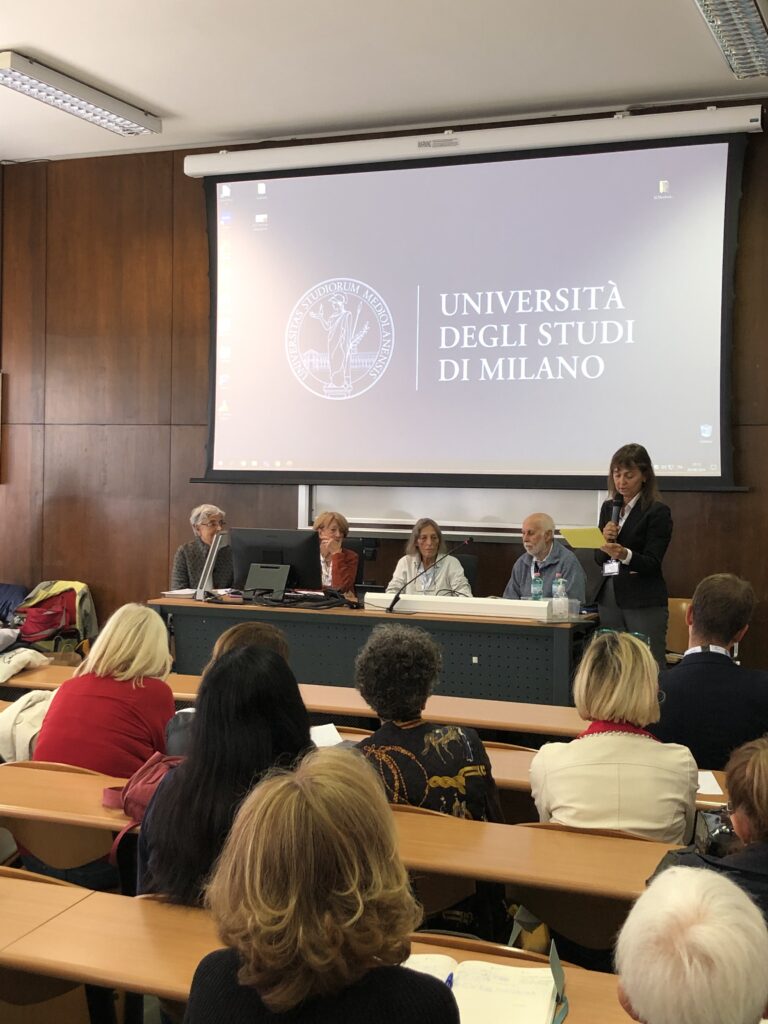
Round table. From left to right: Maria Cecilia Rizzardi, Lucilla Lopriore, Stefania Nuccorini, Gianfranco Porcelli, and Silvia Minardi (photo credits: Emanuela Tenca)
We also talked to Maria Sartorio, who received her Bachelor’s degree in Foreign Languages and Literatures at the University of Milan in 2022. She then attended the Master’s degree program in “European and Extra-European Languages and Literatures”, and she is now writing her dissertation on language teaching under the supervision of Prof. Luciana Pedrazzini. Here are her thoughts about participating in the workshop ELT methodologies and materials: Exploring learning design.
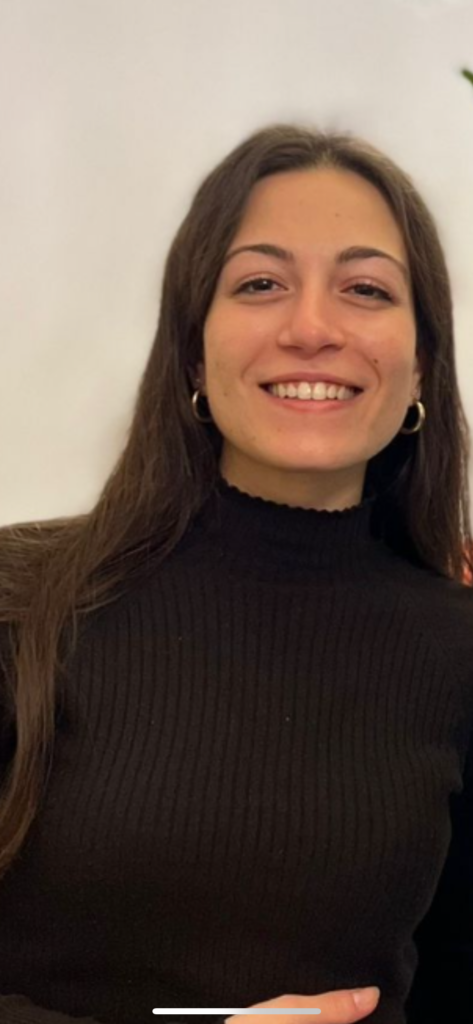
«The workshop held by Professor Sharon Hartle represented a fun, challenging and stimulating moment, as trainee teachers and in-service teachers from all school levels were given the opportunity to come together, interact and share ideas and opinions. As a warm-up activity, prof. Hartle engaged us with a quiz on teaching methods, which allowed us to test our background knowledge and discuss our personal preferences. I, as a trainee teacher, had the opportunity to listen to the different points of view shared by some of the teachers, and I felt inspired by their valuable teaching experiences.
One of the main points which almost all teachers stressed is the complexity of the teaching process, and as a consequence the fact that no teaching method should be considered completely successful or unsuccessful. In fact, there are many aspects that should be considered when opting for a specific teaching method: the age of the students, their level, their learning styles, and also their personal characters and preferences. For instance, using a straightforward and engaging method such as Total Physical Response usually works well with young learners, while group activities such as tasks might work well for lower- and upper- secondary school students. Moreover, as some teachers pointed out, the choice of a teaching method could also be made according to the content of the lesson, whether it is grammar, vocabulary, literature etc. This discussion provided me with a lot of food for thought and pushed me to reflect on the choices I will have to make in the future as a teacher.
In the second part of the workshop, we had to analyse some ELT materials from the Italy ELT Archive and then answer some questions about them. For this task, we were divided into groups, and each group was given different materials. The samples consisted of four or five pages taken from an English course book, which corresponded to a lesson or unit in the book itself. The exercises included listening, reading and comprehension, text production, focus on vocabulary, and oral exercises to be carried out in pairs or small groups. The first question we had to answer regarded the decade in which we thought the book was published. The reason behind this question is that teaching methods have often followed ‘trends’ in materials production, with one being in vogue for a period of time only for it to be replaced by a different method some years later. Next, we had to guess the method implemented in the book, and this represented the most difficult question to answer, as the in-depth analysis of different activities often pointed in different directions. Another question regarded the type of activities, and more specifically whether they could be considered ‘communicative’ and whether they could be classified as ‘tasks’.
The exchange of divergent ideas that took place in my group was once again extremely helpful and enriching. In the end, we always managed to agree on the main points. In particular, we discussed the meaning of the adjective ‘communicative’, and the different shades of meaning that it can present if associated with different kinds of activities. We also discussed the ideal target of the book in terms of learning context and proficiency level.
This workshop was extremely enriching for all participants, but especially for us trainee teachers. Indeed, comparing different teaching methods and exchanging ideas with experienced teachers helped me deepen my understanding of the teaching experience.»
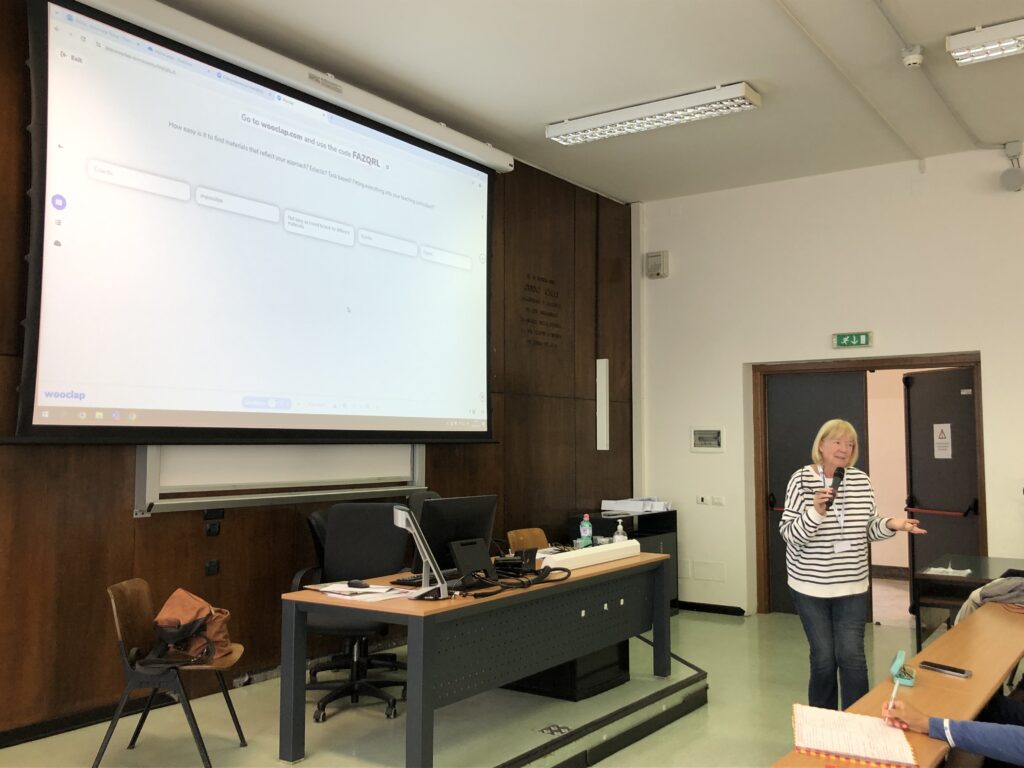
Sharon Hartle conducting the workshop (photo credits: Emanuela Tenca)
If you are interested in more contents regarding the symposium, take a look at the photo gallery or visit the media library for selected recordings.
